I’ve always been interested in why streets have certain names, yet my interest hasn’t been the etymological background to names, nor even the history of streets that have existed in towns and villages for centuries. Instead, I have been interested in trying to explain practices surrounding the naming of relatively modern housing estates.
Why is this important?
Residential spaces require people to feel attached to them, in order for them to function as intended, and people’s attachment with a place increases the longer they and their ancestors have inhabited it. This sense of attachment is solidified through the passing of time, and some of the ‘Then and Now’ pages on this website demonstrate the impression of permanence clearly. The visual manifestation of this effect is seen in the stereotypical English country village setting of Stretton on Dunsmore with its buildings seemingly changing little over a period of time, and consisting of a variety of traditional country cottages.
When Stretton had a controversial new housing estate built on the edge of the village about 30 years ago, it was necessary to link the more modern houses to the older part of the village, and so the choice of names were those of two of the former parish vicars. As such, Squires Road and Roberts Close were born, linking not only to the recent familiar, comforting past of the village as remembered by some in these pillars of the community, but also drawing attention to the stability of the church in the community even as the physical buildings change, with the role of Stretton parish priest dating back to at least 1321.
A (Warwickshire) cultural heritage
The sense of tradition as felt in places such as Stretton on Dunsmore is not easy to create immediately in a newly built housing estate, and it is difficult to enable a social attachment to a place that did not exist previously. As the houses themselves when newly built have no history or background, and so consequently the community of people inhabiting the estates can trace no historical lineage to the place itself, the naming of the estates acts as a substitute. In Rugby, there are many streets with associations overtly linked to Warwickshire (Shakespeare Gardens, and a number of streets associated with Shakespearean characters) yet others also tie in to a British literary tradition, with a number of streets named after famous poets. If memories are what tie people to place, then appropriating the literary canon can work as a substitute, endowing peoples’ new homes with a cultural permanence beyond mere bricks and mortar.

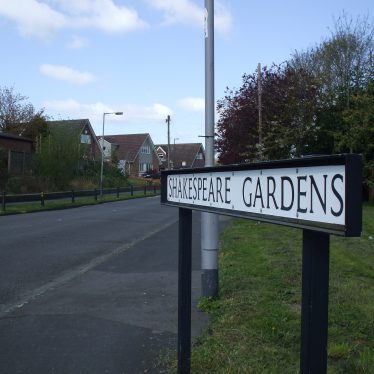
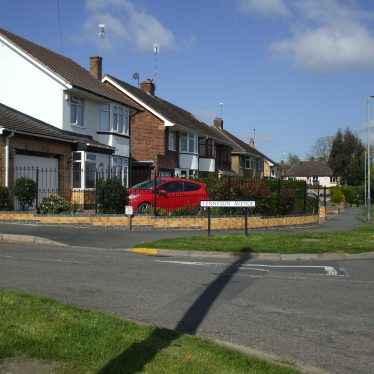
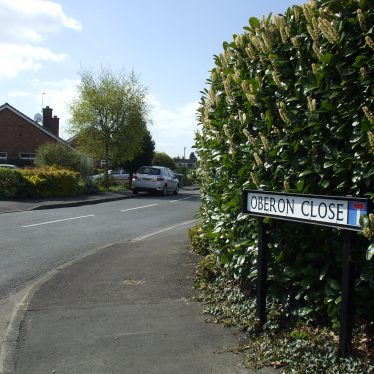
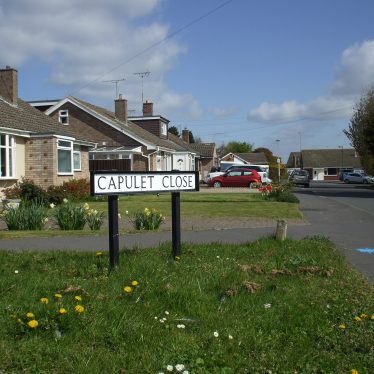
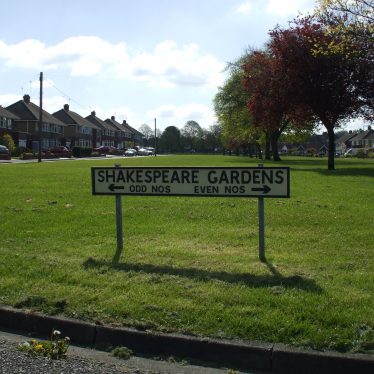
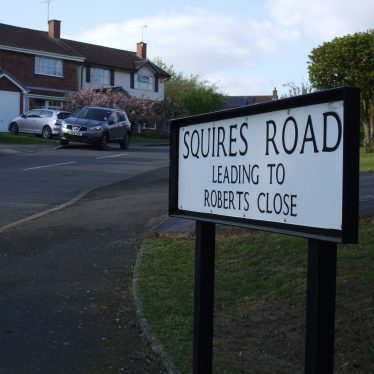






Comments
In Sutton, specifically Walmley, we have a Falstaff Close on a relatively new housing estate.
There are a number of similarly named streets in Leamington Spa, including: Arden Close, Beauchamp Avenue, and Dudley Green.
Hi does anyone know the road name on Off Barby Road on them turn left to the hospital there is a right turn to a lane and there are houses there ?
Thank you in advance
Add a comment about this page